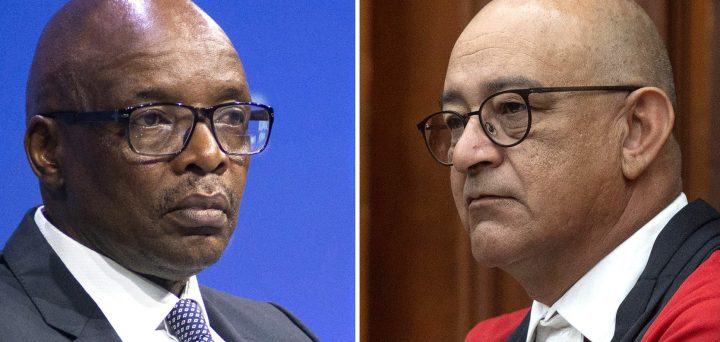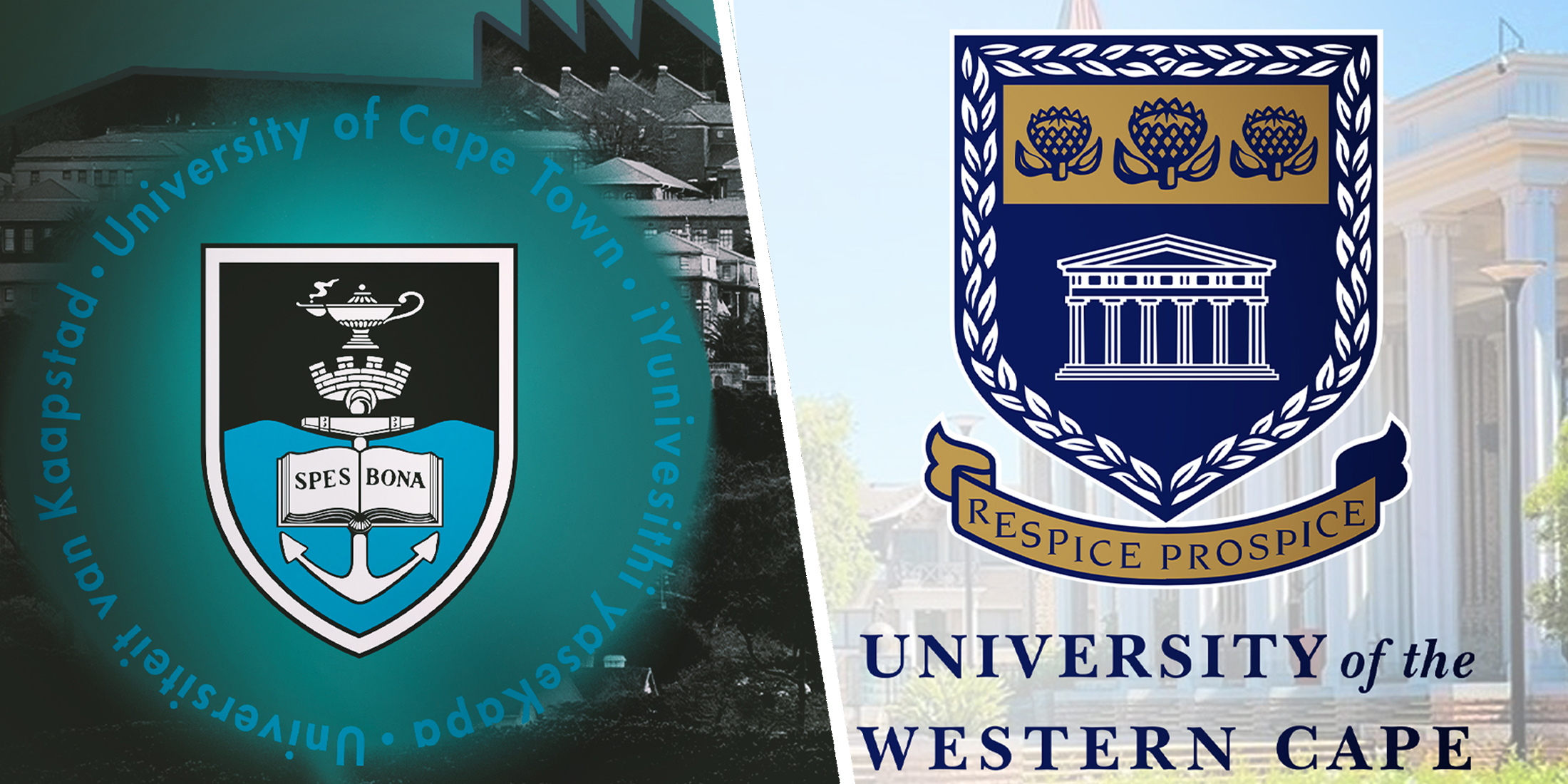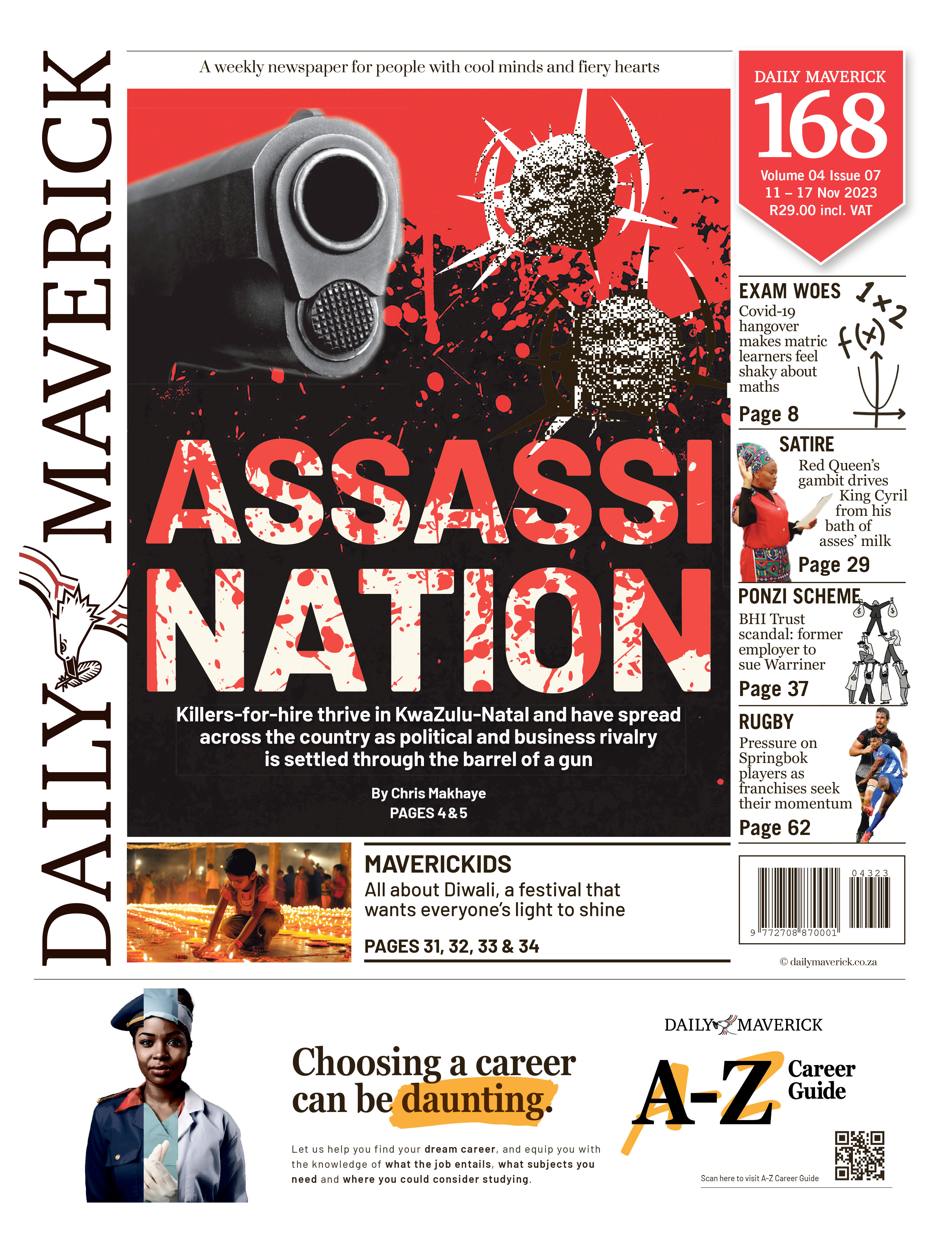CAMPUS CRISIS
Degrees of disorder — top varsities UCT and UWC in turmoil over vice-chancellors

The troubles have sparked a debate over whether councils or their statutes rule the roost.
The key policy document that governs universities is in the spotlight amid the alleged defective appointment processes of vice-chancellors at two of the country’s leading universities.
A University of Cape Town (UCT) independent panel investigating governance failures has detailed how UCT’s former council, led by Sipho Pityana, appointed former vice-chancellor Mamokgethi Phakeng despite serious concerns being raised about her leadership style.
Phakeng left UCT on 3 March and Professor Dayanand Reddy is the interim vice-chancellor.
The UCT’s panel report on 1 November was followed by news of the cancellation of the rector and vice-chancellor recruitment process at the University of Western Cape (UWC).
UWC council announced that a decision was taken to recommence the appointment process after concerns were raised at a 26 October special meeting to consider the report and recommendation of the Senior Appointment Committee of Council (SACC) on the appointment of a rector and vice-chancellor.
Where does the real power lie?
There is now a stalemate at UWC over restarting the appointment process.
Approached for comment, UWC registrar Nita Lawton-Misra said the council was the highest decision-making body of the university and made decisions as a collective.
“Council meets on 23 November 2023 and will consider issues raised by senate. I would only be able to provide council’s view after the council meeting,” Lawton-Misra said.
Read more in Daily Maverick: Drama over University of the Western Cape decision to terminate vice-chancellor recruitment process
A debate has arisen over where the real power resides between university councils and the statutes that govern universities.
At UWC, insiders have raised questions about the council’s authority to cancel the appointment process. Asked what statutory process must be followed to preclude political influence in appointments, UWC spokesperson Gasant Abarder said: “It would not be appropriate to respond at this time.”
UWC’s statute, signed in a Government Gazette by former higher education minister Naledi Pandor in 2018, says the vice-chancellor is selected by the council from candidates put forward by the senate and the institutional forum (IF).
With a combined 2023 budget of about R7.5-billion, the public has the right to know what on Earth is going on at these two public institutions.
The statute states that advertising of the vacancy, recruiting candidates and conducting interviews are determined by the council after consultations with the senate and the IF.
The senate and IF submit to the council a maximum of three names they consider fit and proper for appointment.
The council may allow a further period to re-advertise if the senate and IF think none of the initial applications is fit and proper.
If no candidate gets a majority of votes in the council, the statute says the candidate with the fewest votes must be eliminated and the voting repeated.

The UCT and UWC badges. (Photos: Wikipedia, Wikimedia)
Asked if this statute was still valid, Abarder said he would get back to Daily Maverick, but had not done so by the time of publication.
But three senior academics confirmed the statute’s authenticity and relevance.
Mateboho Green, the spokesperson for Universities South Africa (USAf), an umbrella group of 26 universities, said vice-chancellors are appointed by university councils and this is provided for in the statute and not the Higher Education Act.
The statutes of the 26 universities detail that councils are responsible for appointing vice-chancellors. Green said Section 34 of the act, under the appointment and conditions of service of employees of public institutions, stated, in part, that:
- The council of a public higher education institution must appoint employees;
- Academic employees of the institution must be appointed by the council after consultation with the senate; and
- The council must determine the conditions of service, etc.
The UCT statute
According to the UCT statute, dated 25 February 2022, the council appoints the vice-chancellor after consulting the senate and IF in accordance with council rules.
More information emerged in a UCT report presented to Parliament’s portfolio committee on higher education this week – an update on the independent report and on current efforts to fill the vice-chancellor post. UCT stated its policy outlines two initial responsibilities required of a council chairperson: consulting key constituencies about the composition of the selection committee and about criteria for the position.
Read more in Daily Maverick: Independent report spits fire at UCT’s recent leadership, blasting Mamokgethi Phakeng
The selection committee should comprise the council chair, four external council members elected by the council, two deans elected by the senate, two employment equity representatives elected by the IF chair and co-chairs, three professors (excluding deans) chosen from a panel of five elected by the senate, and two non-professional members of the academic staff chosen from a panel of five elected by the academic staff.
In addition, three professional, administrative, support and service staff in a certain pay grade are chosen from a panel of five elected by that group of staff members, three students (at least one of whom will be a postgraduate student) elected by the student representative council and three co-opted members to ensure appropriate balance and diversity elected by the council.
UCT told the portfolio committee that the current council chairperson, Norman Arendse, had concluded compiling the selection committee on 10 September 2023 and had submitted the list of names to the IF.
The council will finalise its selection committee and the criteria for the post before its next plenary in December 2023.
“Following the above, the selection committee will activate the formal search for a new vice-chancellor,” the report read.
Jonathan Jansen’s take
Well-known academic commentator Professor Jonathan Jansen said UCT was emerging from its most serious governance crisis in 100 years, whereas UWC was stumbling headlong into potentially its most damaging governance crisis in more than 60 years.
“With a combined 2023 budget of about R7.5-billion, the public has the right to know what on Earth is going on at these two public institutions,” said Jansen.
He said that because of the immaturity of South Africa’s vicious campus politics, universities need to rethink public presentations that serve only to demean human beings offering themselves for leadership service.
Jansen said universities became dysfunctional not because there were no rules, but because they defied their own rules.
“This is so obviously the case at UWC… [which] now stands on the brink of a slide into dysfunction.” DM



















 Become an Insider
Become an Insider
Go north and see UNISA and UP, the latter my almamater, see what transpired there. The moment you base choice on anything BUT ABSOLUTE PURE MERIT, then you run into trouble.
There are many variables at play here. Political influence in the appointment of Councils and choosing pliable people to serve, Ethnicity, prejudice and a silent fight back by those who think they have the divine right to run these institutions as they have done so in the past 350 years.
Wow, I guess you refer to anti Hamas people??? Or non-Springbok lovers? Or who do you refer to?
These crises have only developed after 1994.
Well no Mandisa if you were at UCT before and during Phakeng’s years as I was she was a bully and clearly overly narcissistic if you followed her social media back (and still today). That’s about the end of the conversation – truly, she wasn’t good at her job and that’s it. You can’t backsolve your logic now as if it’s some underhanded ploy “by those who think they have the divine right to run these institutions”. You’re intellectually dishonest if you’re chasing to ignore the evidence of how she degraded and victimised a litany of figures across the university (toxic..).
And nice one Mnr van de Venter – yes these crises did happen in after 1994, 2019 – 2023 for UCT and 2023 for UWC. Was that your point or were you making the case that pre-1994 was crises free? Like when I would’ve needed a passbook to enter my home town Johannesburg and when I wasn’t allowed to use the beach? Yes take me back Mnr van de Venter.. the good old days 🙂
GT1000
What do your passbook issues have to with the university appointment of the VC? I suggest that your bringing politics into the matter of the running of what has always been a politics -free academic institution is showing you up!
It’s great that you are objective and can smile – it gives me hope in a united constructive South African phoenix arising from the ashes of the rainbow nation.
Hiring on merit is the only way to ensure the best for all our children.
Which is the most important thing right?
Stop appointing BEE appointees who are totally unsuitable. Appoint on merit.
After 1994, appointments were based on ethnicity. This is also the same time that all entities started its downward spiral.
Of course they were. Step back for a moment and consider what it might have been like to be black in 1994. Would it be going too far to suggest you would have wanted in all? And that you would have resented anyone white? Well why not. Objectively there is a price to be paid for apartheid and suppressing millions. And South Africa is paying it right now.
Haha, you forget that before 1994 they were based on ethnicity – like all white universities only had white leaders? Or that Broederbond made the appointments. Things changed after that.
So you’re celebrating the decline? for all the children of our country? Odd.
Over 1 million students are enrolled into university in South Africa each year. South Africa has one of the lowest graduation rates globally – 15%. So around 150,000 students will actually graduate as I understand from what’s published. These graduates will drive the future of our country forward. The number of graduates is simply too low for what we need in the future. When the senior management and Exco of the university are incompetent, like a cancer, the poor performance and disharmony spread throughout the institution. The VC and council have to be selected on merit and not on the colour of their skin. They have an enormous responsibility to drive our country forward. If there are two candidates of equal merit and one is black and another white, then select the black person to improve diversity. But the primary decision needs to be made on merit. UCT is a case study in how NOT to manage a University. Hopefully they can now forward into an era of better management.